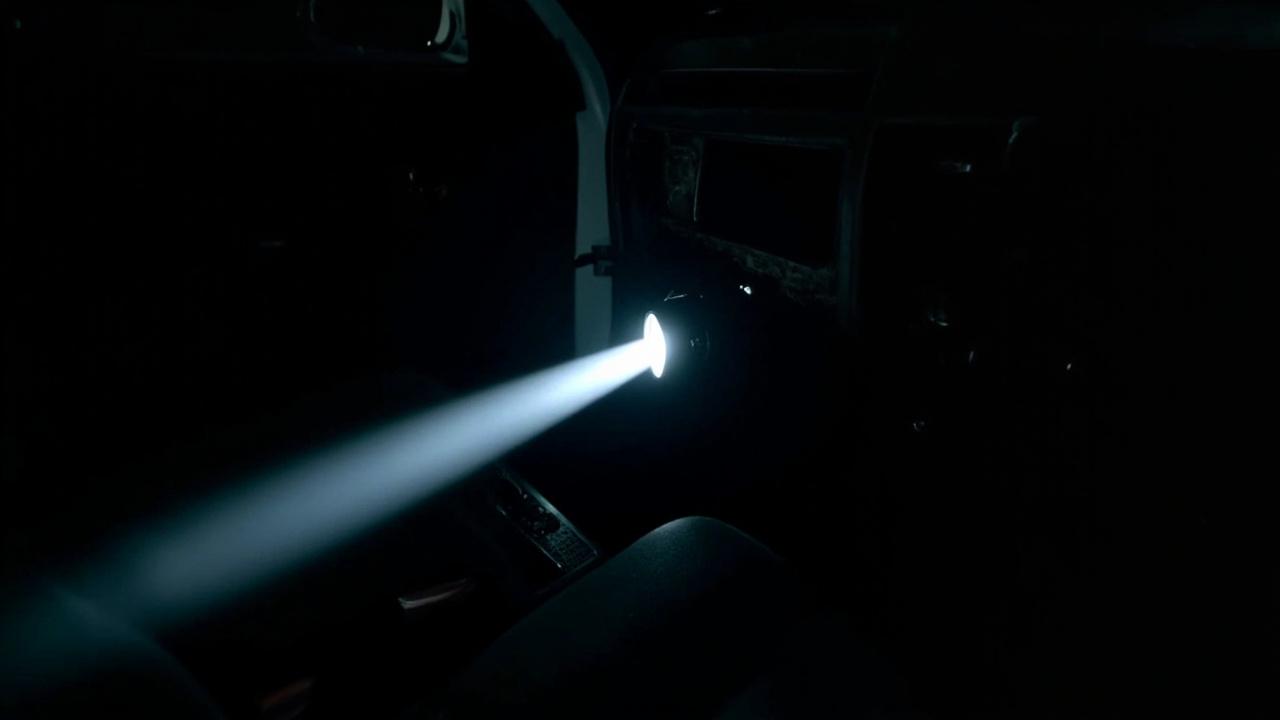Introduction
An illegal search and seizure la can be a frightening experience, especially when it starts with something as seemingly routine as a traffic stop. Imagine being pulled over in Los Angeles, perhaps for a minor infraction. The flashing lights, the stern officer – it can all be quite intimidating.
Now imagine that interaction escalating beyond a simple ticket, leading to questions, demands, and even a search of your vehicle. Do you know your rights? Do you know when a simple traffic stop crosses the line into a violation of your constitutional protections?
The Fourth Amendment to the United States Constitution is designed to protect individuals from unreasonable searches and seizures. This means law enforcement officers generally need a warrant, supported by probable cause, before they can search your person or property.
However, there are exceptions to this rule, and traffic stops can be a gray area. In a city like Los Angeles, where traffic stops are common, it’s crucial to understand the boundaries of what’s permissible and what constitutes an overreach by law enforcement.
This blog post aims to be your guide through the often-confusing landscape of traffic stops in Los Angeles. We will explore the legal basis for these stops, examining what constitutes probable cause and reasonable suspicion.
We will delve into the circumstances under which a police officer can expand the scope of a traffic stop and scrutinize the issue of consent searches. Ultimately, this post will empower you to recognize potential violations of your Fourth Amendment rights and know what steps to take if you believe you’ve been subjected to an illegal search and seizure during a traffic stop in LA.
The Legal Basis for a Traffic Stop in Los Angeles
The legality of a traffic stop in Los Angeles hinges on whether law enforcement possesses either probable cause or reasonable suspicion. Probable cause is a higher standard, meaning there is enough evidence to lead a reasonable person to believe that a crime has been committed. In the context of a traffic stop, this usually means observing a direct violation of the law, such as speeding, running a red light, or having a broken taillight.
An officer who witnesses a driver exceeding the speed limit on the 405 freeway, for instance, has probable cause to initiate a traffic stop. This direct observation provides the legal foundation for the stop, justifying the temporary detention of the driver.
Reasonable suspicion, on the other hand, is a lower standard that allows an officer to make a stop based on specific and articulable facts, which, taken together with rational inferences, lead them to believe criminal activity is afoot. This is less concrete than probable cause.
For example, if an officer observes a vehicle weaving erratically on the road late at night in an area known for DUI incidents, they may have reasonable suspicion to believe the driver is intoxicated, even if they haven’t directly witnessed a traffic violation.
However, this suspicion must be based on more than just a hunch or gut feeling; it requires objective and specific observations. It’s crucial to remember that in the absence of probable cause or reasonable suspicion, a traffic stop may be deemed an illegal search and seizure la, violating the Fourth Amendment.
It’s equally important to understand what does *not* typically constitute probable cause. For instance, having an expired registration *might* be considered probable cause, but there could be nuances. If the vehicle has a valid temporary operating permit displayed, a stop based solely on the expired registration sticker could be challenged.
Similarly, while California law requires smog checks, simply observing an older vehicle wouldn’t automatically justify a traffic stop unless there’s another visible violation. Generalized assumptions or stereotypes about drivers or vehicles are not sufficient grounds for a legal traffic stop. Law enforcement must have a concrete, justifiable reason rooted in either probable cause of a crime or reasonable suspicion of criminal activity.
| Legal Standard | Definition | Example |
|---|---|---|
| Probable Cause | Sufficient evidence to believe a crime has been committed. | Officer witnesses a vehicle speeding. |
| Reasonable Suspicion | Specific, articulable facts suggesting criminal activity. | Vehicle weaving erratically late at night in a known DUI area. |
| Insufficient Grounds | Generalized assumptions or stereotypes. | Stopping an older vehicle solely based on its age. |
Expanding the Stop
The initial purpose of a traffic stop is typically to address a specific violation, such as speeding or a broken taillight. However, situations can escalate when law enforcement officers expand the scope of the stop beyond the original infraction.
It’s crucial to understand the boundaries of what’s permissible, as exceeding those boundaries can lead to violations of your Fourth Amendment rights. The expansion of a traffic stop hinges on the concept of reasonable suspicion; without it, further investigation may be deemed unlawful.
For an officer to legally broaden the scope of a traffic stop, they must have a reasonable, articulable suspicion that other criminal activity is afoot. This means they need more than just a hunch; they must be able to point to specific facts and circumstances that would lead a reasonable person to believe that a crime has been, is being, or is about to be committed.
For example, if during a routine stop, the officer observes the driver exhibiting nervous behavior combined with the smell of marijuana emanating from the vehicle, this might provide the justification needed for further inquiry, such as asking about the presence of drugs or requesting consent to search the vehicle. Here are some examples of what might justify a reasonable suspicion:
It’s vital to emphasize that the burden of proof lies with the officer to demonstrate that the expansion of the stop was indeed justified by reasonable suspicion. Absent such justification, any evidence obtained as a result of an expanded stop could be subject to suppression in court, particularly if it leads to an *illegal search and seizure la*. This is why understanding your rights and knowing when an officer is overstepping their authority is so important.
Consent Searches
A consent search hinges on the idea that you, the individual being stopped, willingly agree to allow law enforcement to search your vehicle or person. However, the validity of that consent is paramount. For a consent search to be considered legal, it must be given freely and voluntarily, without any coercion or duress from the officer.
This means the officer cannot pressure, threaten, or intimidate you into consenting. Any hint of coercion can render the consent invalid and any evidence obtained as a result of the search inadmissible in court.
Factors Affecting Consent
Several factors can influence whether consent is deemed truly voluntary. A key consideration is the atmosphere of the stop. Were you surrounded by multiple officers? Was the officer’s tone aggressive or threatening? Did the officer make any statements that implied you had no choice but to consent?
The length of the detention is also relevant. If you were detained for an extended period before being asked for consent, a court might find that the prolonged detention created a coercive environment, undermining the voluntariness of your consent.
Furthermore, if the officer fails to inform you that you have the right to refuse the search, that can also be used to challenge the validity of the consent. You have rights in this situation, and you must be aware of them, especially when facing a potential illegal search and seizure la.
Asserting Your Rights
It is crucial to understand that you have the right to refuse a search. If you do not want your vehicle or person searched, you must clearly and unequivocally state, “I do not consent to a search.” There should be no ambiguity in your refusal. Saying something like, “I’d rather you didn’t,” might be interpreted as reluctant consent.
It’s vital to be direct and firm. Remember, asserting your right to refuse a search is not an admission of guilt, nor does it give the officer probable cause to search anyway. It simply means you are exercising your Fourth Amendment rights.
Common Scenarios Leading to *Illegal Search and Seizure LA*
Traffic stops, unfortunately, can sometimes veer into territory that violates your constitutional rights, particularly concerning the Fourth Amendment. In Los Angeles, certain scenarios are more prone to these violations than others. It’s crucial to be aware of these “red flags” to recognize when your rights may be at risk during a traffic stop.
One common example is when an officer appears to be engaging in racial profiling. If you are pulled over and questioned extensively, or your vehicle is searched based primarily on your race or the neighborhood you were driving through, this could be an indicator of an illegal search and seizure la. Such actions lack the necessary probable cause or reasonable suspicion and are therefore unconstitutional.
Another frequent violation occurs when an officer extends the duration of a traffic stop without a legitimate reason. A traffic stop should be limited in scope and duration to address the initial traffic violation or the reasonable suspicion that prompted the stop.
If an officer continues to detain you for an extended period, asks irrelevant questions, or conducts a prolonged investigation without developing any additional reasonable suspicion of criminal activity, this could be an unlawful detention. This prolonged detention can then lead to an illegal search if consent is obtained during this extended period or if the officer uses the delay to find another reason to search the vehicle.
Furthermore, officers sometimes exploit minor traffic violations as a pretext to search for drugs or other contraband. For example, a broken taillight might be used as the justification to pull you over, but the officer’s true intent is to investigate potential drug offenses.
If, during this stop for a minor infraction, the officer immediately begins asking questions about drugs, requests consent to search the vehicle, or deploys a K-9 unit without any reasonable suspicion of drug activity, it raises concerns about the legitimacy of the stop.
Similarly, an unjustified K-9 search, where a drug-sniffing dog is used without any prior indication of drug presence, can constitute an illegal search and seizure la. If any of these scenarios sound familiar, it’s important to understand that your Fourth Amendment rights may have been violated.
The Plain View Doctrine
The “plain view doctrine” is an exception to the Fourth Amendment’s warrant requirement, allowing law enforcement officers to seize evidence of a crime without a warrant if certain conditions are met. This doctrine comes into play during traffic stops in Los Angeles and can significantly impact whether a search is deemed legal.
It’s crucial to understand the limitations of this doctrine to protect your rights. Simply put, if an officer sees something incriminating inside your vehicle, it might be used against you, but only if the officer’s presence and observation meet specific legal standards.

For the plain view doctrine to apply, two primary conditions must be satisfied. First, the officer must be lawfully present in the location where they observe the evidence. This means the officer must have a legal justification for being in that position – for example, they initiated a valid traffic stop based on probable cause, or they have your consent to be at your vehicle.
An officer cannot circumvent the Fourth Amendment by trespassing or conducting an illegal search and seizure LA in order to obtain a view of something inside your car. Second, the incriminating nature of the evidence must be “immediately apparent.” This means that without further investigation, it is readily obvious that the item is evidence of a crime or contraband.
Consider some examples in the context of a traffic stop. If an officer pulls you over for a broken taillight and, while speaking to you at your window, sees a bag of what appears to be marijuana on the passenger seat, the plain view doctrine *might* apply. The officer was legally present due to the traffic stop, and the incriminating nature of the marijuana might be immediately apparent.
However, if the officer had to use a flashlight to peer into a closed container to identify the substance, the incriminating nature might not be considered “immediately apparent,” and the seizure could be challenged. Similarly, if an officer sees a legal item, such as a prescription bottle, the plain view doctrine does not allow them to open and inspect the contents unless there is reasonable suspicion to believe it contains illegal substances.
| Condition | Description | Example |
|---|---|---|
| Lawful Presence | Officer must be legally in the location where they see the evidence. | Valid traffic stop for speeding. |
| Immediately Apparent | The incriminating nature of the evidence must be obvious without further investigation. | Open container of alcohol visible on the dashboard. |
What to Do if You Suspect an Illegal Search and Seizure Occurred
If you believe your rights have been violated during a traffic stop in Los Angeles, there are crucial steps you should take to protect yourself and your legal options. Your immediate actions can significantly impact the outcome of any potential legal proceedings.
First and foremost, maintain composure. While it’s natural to feel angry or frustrated if you believe an officer is violating your rights, escalating the situation will not help and could potentially lead to additional charges. Remain polite and respectful, even if you disagree with the officer’s actions. Clearly and unequivocally state that you do not consent to any searches of your vehicle or person.
This verbal declaration is vital, creating a record of your objection to the search. However, it’s important to note that you should *not* physically resist the search, even if you believe it is an *illegal search and seizure LA*. Resisting can lead to arrest and further legal complications.
Following the encounter, meticulously document every detail you can remember about the traffic stop. This includes:
Finally, and perhaps most importantly, seek legal advice from a qualified criminal defense attorney in Los Angeles who specializes in Fourth Amendment law. An attorney can assess the specifics of your situation, advise you on your legal options, and represent you in court if necessary.
Finding the Right Legal Help
When facing potential legal ramifications stemming from a traffic stop in Los Angeles, securing experienced legal counsel is paramount. A skilled LA criminal defense attorney specializing in Fourth Amendment rights can be an invaluable asset in navigating the complexities of your case and ensuring your rights are protected. Understanding how an attorney can assess the legality of the traffic stop and subsequent search is the first step in building a strong defense.
Evaluating the Legality of the Stop and Search
A seasoned attorney will meticulously examine every aspect of the traffic stop to determine if any constitutional violations occurred. This includes scrutinizing the initial justification for the stop – was there probable cause or reasonable suspicion? They will analyze the officer’s actions, questioning whether the scope of the stop was appropriately limited or unlawfully expanded.
The attorney will also investigate the circumstances surrounding any consent given for a search, ensuring it was truly voluntary and not coerced through intimidation or other improper tactics. If the attorney finds evidence of misconduct, such as profiling or an *illegal search and seizure la*, they can take action.
Suppressing Illegally Obtained Evidence
One of the most significant benefits of hiring an attorney is their ability to challenge the admissibility of evidence obtained through an illegal search. If the court finds that the search violated your Fourth Amendment rights, the evidence seized as a result – whether it’s drugs, weapons, or other contraband – can be suppressed.
This means that the evidence cannot be used against you in court, potentially leading to a dismissal of the charges or a more favorable plea agreement. The attorney will know how to file the correct motions and ensure your rights are protected in court.
The Legal Process of Challenging an Illegal Search
Challenging an illegal search and seizure involves a specific legal process. Your attorney will typically file a motion to suppress evidence, arguing that the search was unlawful. The court will then hold a hearing where the prosecution must prove that the search was conducted legally.
Your attorney will have the opportunity to cross-examine the officers involved and present evidence to support your claim that your rights were violated. This process requires a deep understanding of Fourth Amendment law and experience in litigating search and seizure issues in Los Angeles courts. If you believe your rights were violated, don’t hesitate to contact a qualified Los Angeles criminal defense attorney for a consultation.
Conclusion
Navigating a traffic stop in Los Angeles can be a stressful experience, but understanding your rights is paramount to ensuring those encounters remain within the bounds of the law. We’ve explored the intricacies of probable cause, reasonable suspicion, consent searches, and the plain view doctrine, highlighting potential red flags that could signal a violation of your Fourth Amendment rights.
Remember, knowledge is power. By familiarizing yourself with these legal principles, you are better equipped to protect yourself from potential overreach by law enforcement.
It’s crucial to remember that you have the right to remain silent and the right to refuse a search of your vehicle. While remaining polite and cooperative, clearly stating “I do not consent to a search” can be a crucial step in protecting your rights.
Should you find yourself in a situation where you believe an illegal search and seizure LA has occurred, documenting the details of the stop – the officers involved, the location, the sequence of events – will be invaluable.
Ultimately, the goal of this information is to empower you to assert your rights and seek justice if you believe they have been violated. The Fourth Amendment stands as a bulwark against unreasonable government intrusion, and it is up to each individual to understand and defend those protections. If you suspect your rights have been compromised during a traffic stop, don’t hesitate. Contact a qualified Los Angeles criminal defense attorney immediately to explore your options and safeguard your future.
Frequently Asked Questions
What constitutes an illegal search under the Fourth Amendment?
An illegal search under the Fourth Amendment occurs when law enforcement conducts a search without a valid warrant and without fitting into a recognized exception to the warrant requirement. It typically involves a violation of a person’s reasonable expectation of privacy, whether that is in their home, on their person, or in their belongings.
The key is that the government action must intrude upon an area where an individual has a legitimate expectation of privacy and must be conducted without proper legal authorization.
What is probable cause and how does it relate to legal search and seizure?
Probable cause is the reasonable belief, based on facts and circumstances, that a crime has been committed or that evidence of a crime will be found in a specific location. It’s a crucial component in obtaining a warrant for a legal search and seizure.
Without probable cause, a warrant cannot be issued, making any search conducted without it presumptively unreasonable and potentially violating the Fourth Amendment. Probable cause requires more than just suspicion; it demands a factual basis for believing criminal activity is afoot.
What are some common exceptions to the warrant requirement for searches and seizures in Louisiana?
In Louisiana, several exceptions exist that allow law enforcement to conduct searches and seizures without a warrant. These exceptions include consent, where an individual voluntarily agrees to the search; search incident to a lawful arrest, permitting a search of the arrestee and the immediate surrounding area; the plain view doctrine, allowing seizure of readily visible contraband; exigent circumstances, such as imminent danger or destruction of evidence; and the automobile exception, which allows for the search of a vehicle with probable cause.
These exceptions are carefully defined and applied by the courts.
What is the exclusionary rule and how does it apply to illegal searches and seizures in Louisiana?
The exclusionary rule is a legal principle that prohibits the use of illegally obtained evidence in a criminal trial. In Louisiana, if evidence is seized during an unlawful search or seizure, it is inadmissible in court.
This rule serves to deter police misconduct and uphold the integrity of the judicial system by preventing the government from benefiting from its own constitutional violations. Evidence derived from the illegally obtained evidence, often referred to as “fruit of the poisonous tree,” is also inadmissible.
What rights do I have if I believe I have been subjected to an illegal search and seizure in Louisiana?
If you believe you’ve been subjected to an illegal search and seizure in Louisiana, you have the right to remain silent and the right to consult with an attorney. You should not resist the search physically, but you can verbally state your objection to the search. It is important to document the details of the search as accurately as possible.
You can then file a motion to suppress the evidence in court, arguing that it was obtained illegally and should not be used against you. Consulting with an attorney is crucial to protecting your rights.









